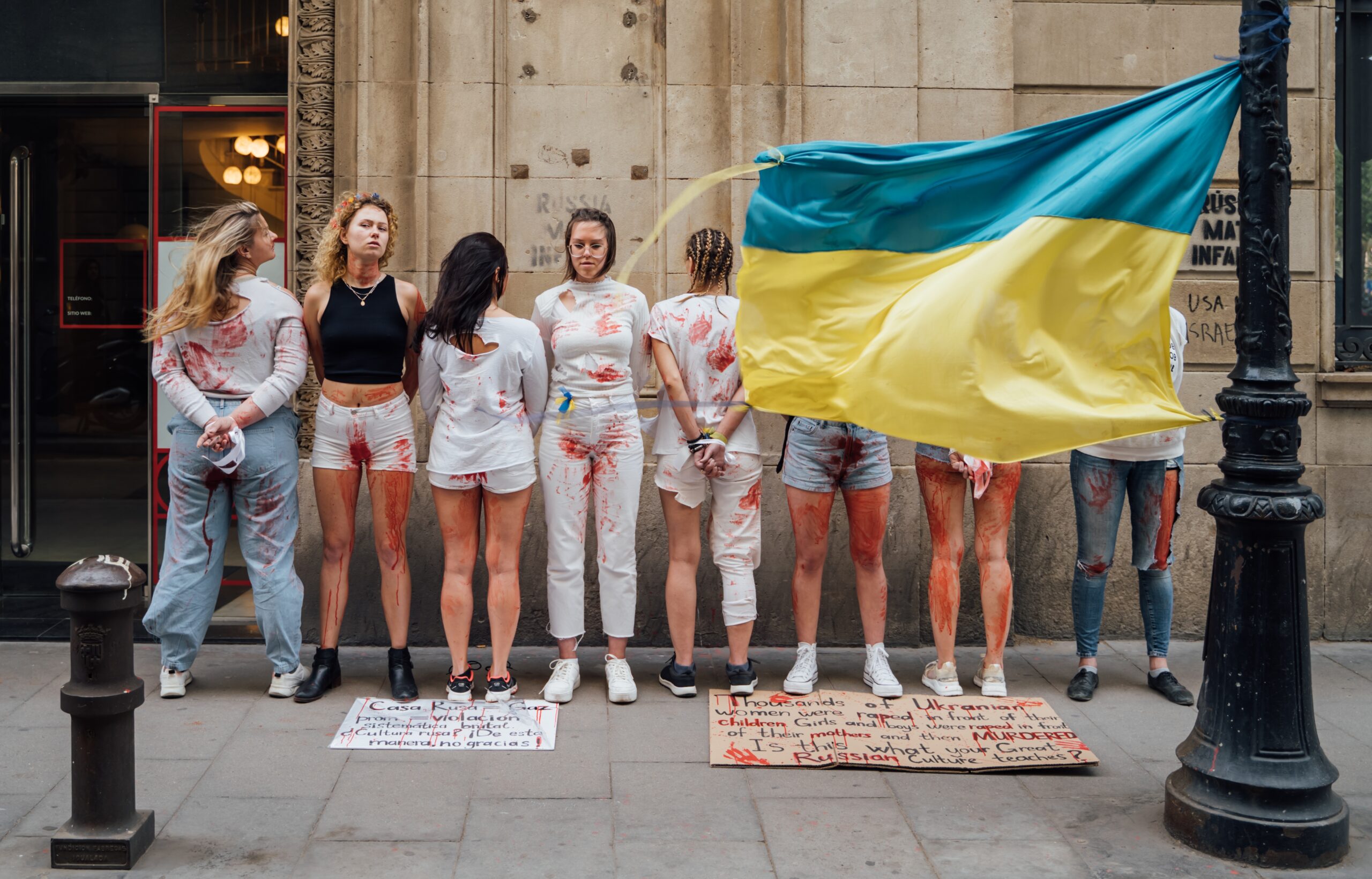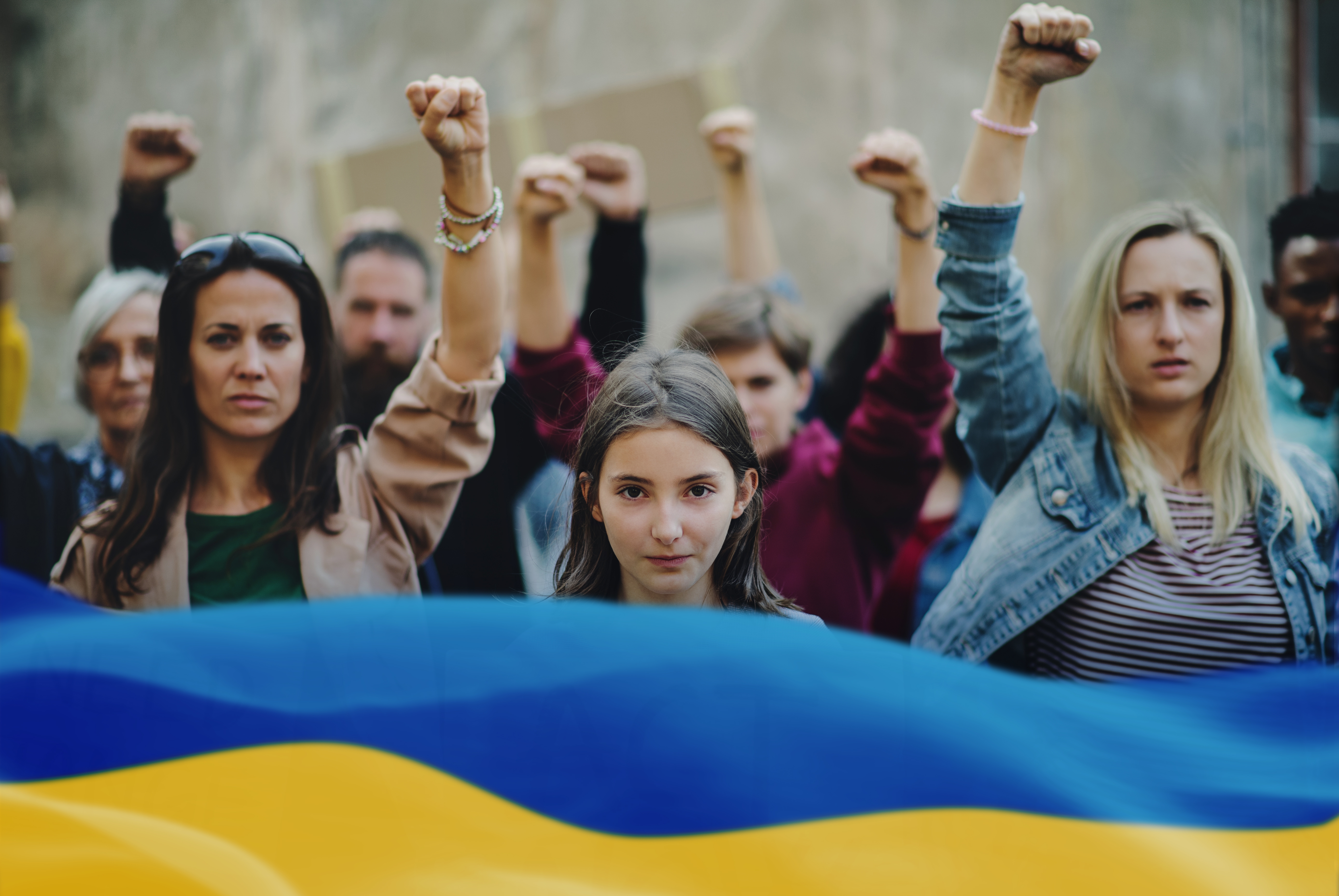By its very nature, conflict transforms territories into arenas of international risk. For well over a year, the ongoing war waged by Russian President Vladimir Putin against Russia’s former Soviet territory, Ukraine, has allowed the world to witness this transformation first-hand.
For the hundreds of thousands of Ukrainian and Russian men drafted into the war, the risks are costly but obvious. However, no less consequential are the risks faced by the millions of Ukrainian women who live largely in the shadow of Putin’s storm of violence. What they encounter has plagued women in conflict zones for as long as history can remember – the devastatingly patriarchal nature of war.

The risk of sexual violence
The genocidal nature of World War II is cemented in the minds of generations, with the horrors of the Holocaust and the deaths of Allied forces mourned internationally. Missing from the canonical narrative, however, is a gendered lens that reveals the widespread perpetration of rape by combatants that resulted in an estimated 200,000 births. The Second World War was no outlier – the UN estimates that 100,000-250,000 women were raped in the 1994 Rwandan genocide, as well as 60,000 during Sierra Leone’s civil war, 40,000 in Liberia, 60,000 in the former Yugoslavia, and at least 200,000 in the Democratic Republic of Congo.
Unfortunately, the war in Ukraine has demonstrated that a woman’s risk of encountering sexual violence during conflict has not diminished with time. It is impossible to place a figure on the amount of women raped at the hands of Russian soldiers – the war is of course ongoing, some regions remain in an information blackout, and, as we discussed on this week’s episode of The International Risk Podcast, the nationalistic undertones of the conflict often leave women and their families too ashamed to disclose what they have endured at the hands of the enemy. What is clear from the harrowing accounts already circulating, as well as from the testimonies of humanitarian workers like Nerida Williams, is that sexual assault in Ukraine remains a significant risk.
The International Risk Podcast discovered how this risk is by no means one-dimensional. Whilst it may arrive alongside Russian troops it also emerges from behind closed doors, as domestic violence levels soar, and further still beyond the border where a lack of regulation renders refugees vulnerable to sexual exploitation. What is behind the multi-faceted risk of sexual violence that skyrockets during times of conflict? As Nerida Williams explained to us, the reasons are numerous. Whilst an increase in domestic violence is the manifestation of heightened levels of stress and confinement indoors, the risk of sexual abuse to refugees is often opportunistic, arising from a clear power imbalance that renders women especially vulnerable.
The reason why troops on the ground so habitually turn to sexual violence is, however, up for debate. Whilst some view sexual assault as the result of troops taking advantage of their power amidst a general breakdown in law and order, oftentimes a more sinister motivation can be identified. Nerida explained how her time on the ground in Ukraine left her with an uneasy sense that Russia’s use of sexual violence possesses a genocidal intent and thus constitutes a weapon, rather than a by-product, of war. Her experiences do not make it hard to support this perspective – Nerida spoke of learning that Russian troops were raping Ukranian women to prevent them from falling pregnant with Ukranian children in the future. What she reports echoes accounts from Bucha of a particular case in which 25 women, aged 14-24, were said to have been systematically raped in a house, with 9 victims subsequently falling pregnant.
The risk to reproductive healthcare
The issue of sexual violence dominates headlines due to its horrific nature. Yet it is by no means the only gendered consequence of war. As Nerida explained, one of the main risks women face – a lack of access to reproductive health services – appears unremarkable yet carries life-changing consequences.
Amidst the backdrop of the Ukraine war, women continue to get their periods. They also continue to require access to contraception, abortions, and vital maternity care. With medication increasingly difficult to access, healthcare centers damaged, and women forced to give birth in underground bomb shelters, for half of Ukraine’s population, a reproductive healthcare crisis is occurring. This crisis is not unique to Ukraine – it has long been known that a lack of reproductive healthcare reduces the mortality of the female population both during and after war.

Moving forward: mitigating the risks
The Ukraine war demonstrates that where there is war, women will suffer disproportionately. This injustice must not be tolerated, and it is imperative that all efforts are taken to mitigate the risks posed by sexual violence and inadequate reproductive health services.
The framework of International Law, whilst not preventative, should at the very least offer hope at the institutional level that Russian perpetrators of sexual violence will be held to account. The mechanisms of the Rome Statute allow an International Criminal Court to prosecute individuals for war crimes, crimes against humanity, and genocide – elements of which are clearly present in Russia’s perpetration of sexual violence. Yet, the precedent of the court on issues of sexual violence is dismal. Difficulty obtaining evidence, the reluctance of victims to come forward, and the failure of the ICC and Tribunals to prioritize wartime sexual violence led to a disappointing number of convictions in countries including Bosnia and Herzegovina, Rwanda, Cambodia, and Sudan. It is for these reasons that many, including Nerida, remain unsure whether International Law can effectively hold Russia to account for sexual violence and thus reduce the risk to women in future conflict zones.
Disappointing odds on the legal system, however, do not mean that all hope is lost for Ukranian women. International NGOs and local organizations are stepping in on a phenomenal scale, demonstrating, paradoxically, how the war is a platform for much altruism and humanity. The International Planned Parenthood Federation is just one example. This week, The International Risk Podcast explored how, together with their partner organization, Women’s Health and Family Planning Ukraine, IPFF is tackling the risk of sexual violence and inadequate reproductive healthcare head-on. By providing medical and emotional support to victims of sexual violence and setting up centers that provide safe maternity and abortion care, IPFF and WMFU show how NGOs and local organizations can mitigate the risks that women in conflict face.
Yet tackling these risks does not stop here. Sexual violence, domestic violence, and inadequate reproductive healthcare all share one root – patriarchy. Beneath it all, it is the social hierarchy of the sexes that allows soldiers to dehumanize female populations, men in occupied territories to release anger on their wives, and governments to view reproductive healthcare as a low priority. It is the dismantling of this social hierarchy, then, that holds the key to tackling the gendered division of war. The onus is on everyone – lawmakers and humanitarian organizations, yes, but also on governments, businesses, and individuals going about their everyday lives. The dark side of patriarchy has already been felt by Ukraine’s women yet a combination of change at both the top, and the very bottom, can reduce the risks women face in future conflicts.